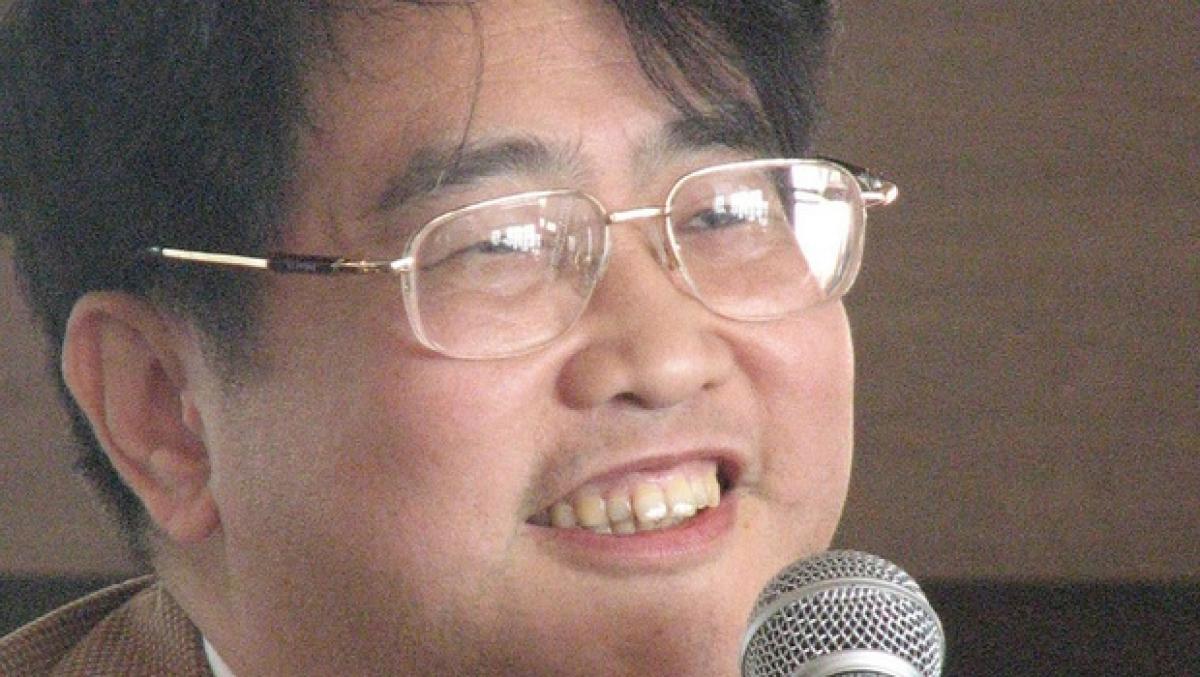Live
- Over 7,600 Syrians return from Turkiye in five days after Assad's downfall: minister
- Delhi BJP leaders stay overnight in 1,194 slum clusters
- Keerthy Suresh and Anthony Thattil Tie the Knot in a Christian Ceremony
- AAP, BJP making false promises to slum dwellers for votes: Delhi Congress
- 'Vere Level Office' Review: A Refreshing Take on Corporate Life with Humor and Heart
- Libya's oil company declares force majeure at key refinery following clashes
- Illegal Rohingyas: BJP seeks Assembly session to implement NRC in Delhi
- Philippines orders full evacuation amid possible volcanic re-eruption
- Government Prioritizes Welfare of the Poor, says Dola Sri Bala Veeranjaneyaswamy
- Two Russian oil tankers with 29 on board damaged due to bad weather
Just In

x
Highlights
Surreptitiously reading translations of Sherlock Holmes and other detective fiction as a student amid the Cultural Revolution\'s turbulence, Chinese poet and academician Qiu Xiaolong had no idea that one day he would also be writing a series of \'whodunit\' mysteries giving a view of his home city Shanghai as memorable yet gritty as of Victorian London in Conan Doyle\'s works.
urreptitiously reading translations of Sherlock Holmes and other detective fiction as a student amid the Cultural Revolution's turbulence, Chinese poet and academician Qiu Xiaolong had no idea that one day he would also be writing a series of 'whodunit' mysteries giving a view of his home city Shanghai as memorable yet gritty as of Victorian London in Conan Doyle's works.
Qiu, 62, has to his credit the nine-installment (so far) Inspector Chen series (from "Death of a Red Heroine", 2000, to "Shanghai Redemption", 2013), which are not only police procedurals but offer a nuanced, incisive view of a rapidly-changing China where economic liberalisation has led to prosperity, and even affluence, but also strains between old socialists and new capitalists, and of course, crime and corruption.
But writing a detective series was farthest from his mind, Qiu told IANS in a e-mail interview.
In the US in 1988 to write a book on T.S.Eliot, he had to stay there as media reports about his fund-raising efforts for Chinese students could have caused problems back home in the post-Tiananmen Square crackdown. When he could make a trip back to China, he was impressed by changes he saw, and first tried to portray them in the form of a novel.
"In 1996, after an eight-year absence from China as a visiting scholar and then as a Ph D candidate in the US, I went back to China for the first time. I was so impressed by all the changes that had been taking place there, I tried to write a novel about the society in transition," said Qiu, who is based in St.Louis (Missouri).
"But with fiction being a new genre to me, I had a difficult time putting my material together. So I thought of using a detective story as a ready-made framework, in which I might say what I want to say."
And detective stories were familiar to Qiu, who had begun to read them "as early as my middle school days in China, in Chinese translations of course, and by stealth as the company of Sherlock Holmes could get a young Chinese reader into trouble during the days of the Cultural Revolution".
He kept up with them, both in Chinese and English, "no longer that stealthily, but mainly in my spare time, but I never thought I would be going to write in the genre myself". He however found the form could serve his purpose well.
"For a sociological attempt, a cop can be a very convenient agent, who can walk around the city, knock on people's doors, and raise all sorts of questions, though not necessarily all have the answers," he said.
And thus was born Inspector Chen Cao, a poet and translator (of British and American mystery novels), who has, however, under Deng Xiaoping's Cadres policy, been made a policeman and that too in Shanghai's Special Cases Bureau.
Qiu was himself unsure if "Death of a Red Heroine", which won the prestigious Anthony Award for best first novel in 2001, was a detective story.
"But my publisher liked it, and signed me a contract for three books. And then it turned into a series in spite of myself," he told IANS.
Inspector Chen resembles his author, who says this was both conscious and subconscious.
"For instance, I write poems, but it can be extremely difficult for poems to reach readers, so came the idea of smuggling poems into the popular genre of detective stories. But it's also more than that, in classical Chinese novels, there are more poems than in the Inspector Chen novels, sometimes with a poem at the beginning of a chapter, and then at the end too," he said.
Qiu said that for him, it was not enough to write just a whodunit story and "I've tried to put each of the stories in special economic, social, political circumstances, in a sort of exploration of both the crime and the background, or in other words, a sociological approach".
He intends to go on with the series but with some big changes.
"Also, it's not enough to just write a new story for the series, and I'm trying something totally new in terms of the structure for the one after 'Shanghai Redemption'.

Next Story
More Stories
ADVERTISEMENT
© 2024 Hyderabad Media House Limited/The Hans India. All rights reserved. Powered by hocalwire.com







